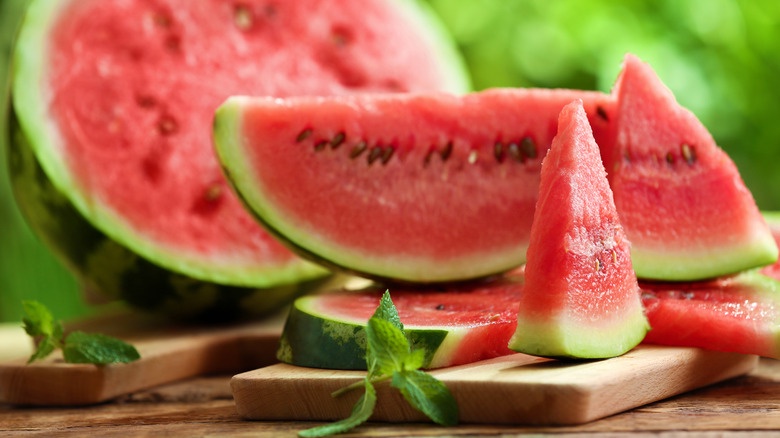Watermelon is a delicious and refreshing fruit that is enjoyed around the world. It is a summer staple and is often eaten as a dessert or snack. However, watermelon is not just a tasty treat, it also offers numerous health benefits. In this article, we will explore the health benefits, uses, and important facts about watermelon.
Health Benefits of Watermelon:
1. Hydration: Watermelon is over 90% water, making it an excellent source of hydration. Staying hydrated is important for maintaining a healthy body, as it helps regulate body temperature, aids in digestion, and promotes healthy skin. Eating watermelon is a delicious way to keep your body hydrated, especially during the hot summer months.
2. Rich in Nutrients: Watermelon is packed with essential nutrients such as vitamins A, B6, and C, as well as potassium and lycopene. Vitamin A is important for healthy eyesight, while vitamin C helps boost the immune system. Potassium is important for maintaining healthy blood pressure, and lycopene is a powerful antioxidant that can protect against certain types of cancer.
3. Digestive Health: Watermelon contains fiber, which is essential for maintaining good digestive health. Fiber helps regulate bowel movements and can prevent constipation. Eating watermelon can also promote the growth of healthy gut bacteria, which is important for overall digestive health.
4. Heart Health: Watermelon contains an amino acid called citrulline, which has been linked to improved heart health. Citrulline can help lower blood pressure and improve blood flow by dilating blood vessels. This can reduce the risk of heart disease and stroke.
5. Anti-inflammatory Properties: Watermelon contains anti-inflammatory compounds such as lycopene and vitamin C. These compounds can help reduce inflammation in the body, which can lower the risk of chronic diseases such as arthritis and type 2 diabetes.
Uses of Watermelon:
1. Eating Fresh: Watermelon is often enjoyed fresh and sliced into wedges or cubes. It is a refreshing and healthy snack that is perfect for hot summer days.
2. Juicing: Watermelon can be juiced to create a delicious and refreshing beverage. It is often blended with other fruits and vegetables to create a nutritious and flavorful juice.
3. Salads and Salsas: Watermelon can be used to add a sweet and refreshing flavor to salads and salsas. It pairs well with feta cheese, mint, and cucumber in a fresh and healthy salad.
Important Facts about Watermelon:
1. Ripe Watermelon: A ripe watermelon should feel heavy for its size and have a dull, not shiny, exterior. The underside should have a creamy yellow spot, which indicates that it has ripened on the vine.
2. Seedless Varieties: Seedless watermelon is a popular variety that is often preferred for its convenience. However, it is important to note that seedless watermelons are not genetically modified. They are a result of hybridization and are produced by cross-pollinating male and female watermelon plants.
3. All Parts are Edible: Contrary to popular belief, all parts of the watermelon are edible, including the rind and seeds. The rind can be pickled or used in stir-fries, while the seeds can be roasted and eaten as a snack.
4. Nutritional Information: A one-cup serving of watermelon contains approximately 46 calories, 12 grams of carbohydrates, and 1 gram of protein. It is also low in fat and sodium, making it a healthy snack choice.
In conclusion, watermelon is a delicious and nutritious fruit that offers numerous health benefits.


No comments yet